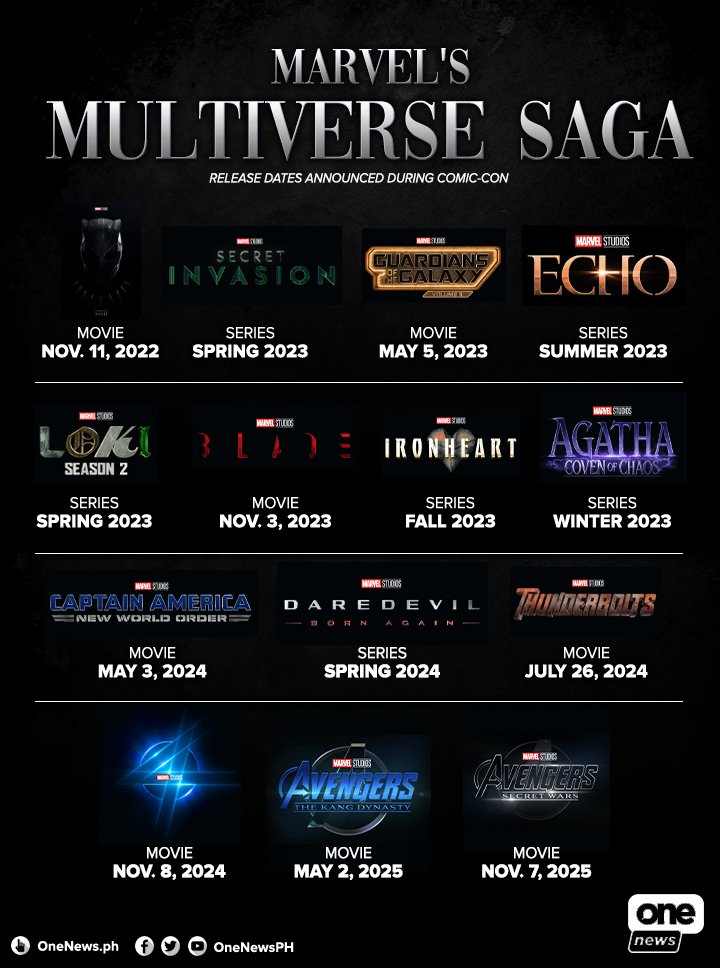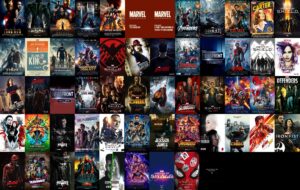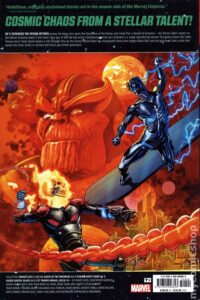The concept of the multiverse has been picking up steam in the world of Marvel, with a recent slew of releases that delve into the idea of infinite parallel universes. This notion, while mind-boggling, has been expertly woven into the fabric of Marvel’s storytelling, resulting in some truly fascinating and unpredictable narratives.

- We’ve Just Witnessed A Game-Changing Shift In The Superhero Universe
- Marvel’s Latest Movie: Shaping The Future Of The Franchise
- The Ever-Evolving Cinematic Universe: A Look Back And A Leap Forward
- MCU’s Latest Release – Unraveling The Intricate Web Of Connection
- The Biggest Surprises In Marvel’s Latest Movie
One of the most obvious examples of this phenomenon is in the Marvel Cinematic Universe (MCU). Films like ‘Doctor Strange in the Multiverse of Madness’ and ‘Spider-Man: No Way Home’ have explored the concept of the multiverse in varying capacities. The ‘Multiverse of Madness’ sees the eponymous sorcerer dealing with an existential threat that could unravel the very fabric of reality, while ‘No Way Home’ explores the idea of multiple parallel universes through the lens of Spider-Man.
The ‘Multiverse of Madness’ does an excellent job of driving home the notion of infinite possibilities, taking viewers on a breathtaking tour of various universes, from fantastical realms to dystopian futures. Benedict Cumberbatch reprises his role as the Sorcerer Supreme, employing his formidable wit and charm as he navigates this surreal landscape.
Meanwhile, ‘No Way Home’ brings a sense of nostalgia and excitement as our favorite web-slinger (Tom Holland) finds himself juggling the responsibilities of superhero life with the weight of balancing multiple universes. This film masterfully explores the concept of ‘What If’ – what if a certain character made a different decision? What if events played out in an alternate reality? It’s a thought-provoking exercise that leaves viewers eager to see where these scenarios will take the characters.
The notion of the multiverse is, of course, not new to comics. The idea of parallel universes has been explored extensively in various story arcs across the Marvel universe. The ‘Spider-Verse’ event in 2014, which saw Miles Morales juggling the fate of his own reality alongside an array of Spider-Men from different dimensions, paved the way for further exploration of this concept.
TV shows like ‘What If…?’ and ‘Loki’ have also hopped aboard the multiverse bandwagon, delving into parallel realities with an infectious enthusiasm. ‘Loki’ found its main character (played by Tom Hiddleston) wandering through an infinite timestream, bumping into alternate versions of himself as well as other notable figures from the MCU.
The trend shows no signs of slowing down either, with the next major MCU release – ‘Ant-Man and the Wasp: Quantumania’ – reported to explore the multiverse within the Quantum Realm. This might serve as a key stepping stone to larger discussions of the multiverse within the Marvel Universe as a whole.
Beyond the intrigue and complexity that come with exploring multiple realities, the multiverse poses an enticing possibility for new narratives within the Marvel Universe. With infinite parallel universes comes the chance to see familiar characters take on different roles – just imagine, for example, a reality in which Thanos might serve as a hero, rather than a demigod hell-bent on wiping out half of existence.
What’s certain is that the multiverse, in all its mind-bending complexity, presents an insatiable buffet of stories waiting to be uncovered and explored. For viewers, this presents an extraordinary opportunity – we get to revel in this near-limitless narrative framework, not knowing what other wonders or horrors lie beyond the door.
As Marvel delves further into this idea, it’s natural to ponder what the implications of the multiverse could be on our perception of these stories – and, indeed, of reality itself. In this twisting dance of parallel identities and counter-realities, our world may be only a minor chord in a celestial orchestra of worlds we can barely begin to comprehend.
That’s the undeniable power of storytelling in action – spinning parallel worlds, painting vistas of other ‘what ifs’. If we let these ‘what ifs’ intertwine with our own reality, what unimaginable leaps of imagination may follow?




